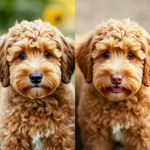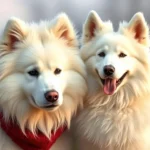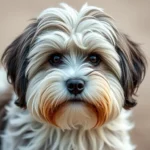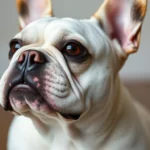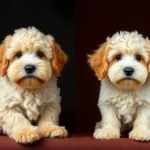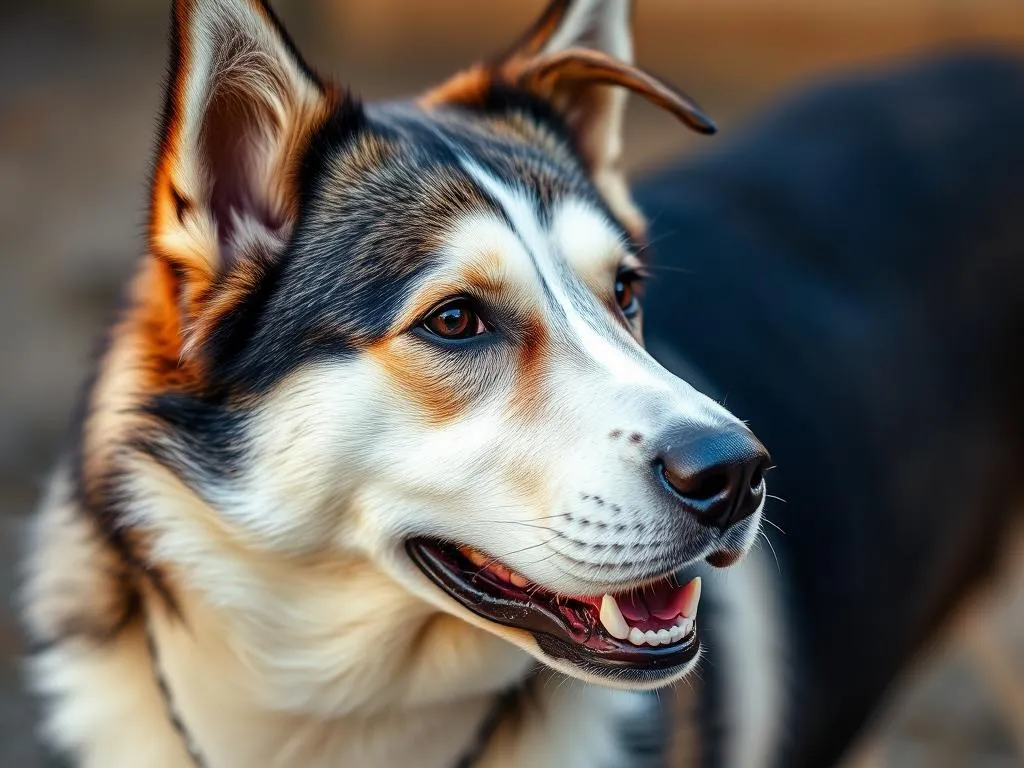
Introduction
Overview of Dog Breeds
Dog breeds come in various shapes, sizes, and temperaments, each developed for specific purposes—from herding livestock to providing companionship. Understanding different breeds is essential for potential dog owners, especially when considering mixed breeds. Mixed breeds often inherit qualities from both parent breeds, leading to unique characteristics and traits that can make them both charming and challenging.
Focus on Rhodesian Husky Mix
The Rhodesian Husky mix is a crossbreed that combines the Rhodesian Ridgeback and the Siberian Husky. This mix has been gaining popularity due to its striking appearance and energetic personality. But what exactly does this mix entail? In this article, we’ll explore the parent breeds, the mix’s characteristics, care requirements, potential challenges, and more.
Understanding the Parent Breeds
Rhodesian Ridgeback
History and Origin
The Rhodesian Ridgeback originated in Southern Africa, where it was bred by the Khoikhoi people. Known as the “African Lion Hound,” this breed was utilized for hunting lions and other game due to its strength, agility, and loyalty. Their history as a working dog has shaped their robust and resilient nature.
Physical Characteristics
Rhodesian Ridgebacks are medium to large-sized dogs, typically weighing between 70-85 pounds. Their short coat is sleek and can range from light wheaten to red. A defining feature is the distinctive “ridge” of hair along their back, which grows in the opposite direction to the rest of the coat.
Temperament
These dogs are known for their independence, intelligence, and protective nature. They are loyal and can be affectionate with family members but may exhibit aloofness towards strangers. Proper socialization is essential to ensure they are well-rounded companions.
Siberian Husky
History and Origin
The Siberian Husky is a medium-sized working dog bred by the Chukchi people in Siberia. Originally used for sledding, these dogs are renowned for their endurance and ability to thrive in harsh climates. Their history as pack animals contributes to their sociable and friendly nature.
Physical Characteristics
Siberian Huskies generally weigh between 35-60 pounds and possess a thick double coat that can come in various colors, including black, gray, and red. Their striking blue or multicolored eyes are often considered one of their most appealing features.
Temperament
Huskies are known for their playful and energetic disposition. They are friendly, social, and get along well with children and other pets. However, they can be stubborn, requiring consistent training and boundaries.
Characteristics of the Rhodesian Husky Mix
Physical Traits
Size and Weight
The Rhodesian Husky mix can vary significantly in size, typically ranging from 50 to 80 pounds, depending on which parent breed they take after more. Their height can range from 20 to 26 inches, making them a medium to large-sized dog.
Coat and Color Variations
When it comes to coat and color, the mix can inherit traits from either parent. Common coat types include short and dense fur, with possible colors being wheaten, red, black, gray, or a combination of these. Some may even display the distinctive ridge from the Rhodesian Ridgeback parent.
Temperament and Behavior
General Traits
The temperament of the Rhodesian Husky mix often blends the loyalty of the Rhodesian Ridgeback with the playful nature of the Siberian Husky. They tend to be intelligent, energetic, and social, making them great companions for active families.
Socialization Needs
Socialization is crucial for this mix. Early exposure to various environments, people, and animals helps prevent behavioral issues. They can be friendly, but their protective instincts may lead them to be wary of strangers, making proper training essential.
Health Considerations
Common Health Issues
Like all mixed breeds, the Rhodesian Husky mix can inherit genetic health issues from either parent. Common health concerns may include hip dysplasia, eye conditions, and certain skin disorders. Regular veterinary check-ups are vital to monitor their health.
Lifespan
The average lifespan of a Rhodesian Husky mix ranges from 10 to 14 years, depending on genetics, diet, and overall care.
Training and Exercise Requirements
Training Techniques
Early Socialization
Introducing your Rhodesian Husky mix to different people, pets, and environments during their formative months is critical. Early socialization helps them develop a balanced temperament and reduces the likelihood of fear-based behaviors.
Basic Commands
Teaching basic commands such as “sit,” “stay,” and “come” is essential. Using positive reinforcement techniques, like treats and praise, can help make training enjoyable and effective.
Exercise Needs
Daily Exercise Requirements
Both parent breeds are known for their high energy levels, so the Rhodesian Husky mix will require significant daily exercise. Aim for at least 60 to 90 minutes of physical activity each day, including walks, runs, and playtime.
Playtime Activities
Engage your dog with interactive games such as fetch, frisbee, or agility training. Mental stimulation is equally important, so consider puzzle toys or training exercises that challenge their minds.
Care and Grooming
Grooming Needs
Coat Care
The grooming needs of a Rhodesian Husky mix will depend on the coat type inherited from its parents. Regular brushing is essential to minimize shedding and keep the coat healthy. Short-haired mixes may require less frequent grooming, while long-haired variants will need more regular maintenance.
Nail and Dental Care
Regular nail trimming and dental hygiene are vital for your dog’s overall health. Aim for monthly nail trims and incorporate dental care practices, such as brushing their teeth or providing dental chews.
Nutrition
Dietary Needs
A balanced diet is crucial for the health of a Rhodesian Husky mix. High-quality dog food that meets their nutritional needs is essential. Consult with your veterinarian to determine the best diet based on age, weight, and activity level.
Feeding Guidelines
Establish a regular feeding schedule and monitor portion sizes to prevent obesity, which can lead to health issues. Typically, adult dogs should be fed twice a day, while puppies may require three to four smaller meals.
Potential Challenges
Behavioral Issues
Common Behavioral Problems
While the Rhodesian Husky mix is generally friendly, they may exhibit behavioral issues such as separation anxiety, excessive barking, or destructive tendencies if not properly trained or socialized.
Solutions and Training Tips
Addressing these issues may require additional training and behavioral modification techniques. Ensuring they have enough physical and mental stimulation can significantly reduce problem behaviors.
Environmental Needs
Living Space Requirements
This mix does well in homes with ample space, including a yard where they can play and explore. They thrive in active households where they can engage in regular exercise and family activities.
Climate Considerations
While the Siberian Husky is well-suited for colder climates due to its thick coat, the Rhodesian Ridgeback is more adaptable to warmer weather. The Rhodesian Husky mix may inherit a combination of these traits, making them suitable for a range of climates but still requiring proper care to keep them comfortable.
Conclusion
Recap of Key Points
The Rhodesian Husky mix is a dynamic and engaging breed that combines the best traits of its parent breeds. Understanding their characteristics, care requirements, and potential challenges is vital for prospective owners.
Final Thoughts
This mix is ideal for active families or individuals who can provide the necessary exercise, training, and socialization. If you’re considering adding a Rhodesian Husky mix to your family, think about adopting from shelters or rescues, giving a loving home to a dog in need.
FAQs
Common Questions About Rhodesian Husky Mix
-
How much exercise does a Rhodesian Husky mix need?
They require 60 to 90 minutes of vigorous exercise daily to stay happy and healthy. -
Are Rhodesian Husky mixes good with kids?
Yes, they typically have a friendly disposition and can be great companions for children with proper socialization. -
What are common health issues for Rhodesian Husky mixes?
Potential issues can include hip dysplasia, eye conditions, and skin problems. -
Do Rhodesian Husky mixes shed a lot?
Depending on the coat type, they may shed moderately to heavily, requiring regular grooming. -
How can I train my Rhodesian Husky mix?
Use positive reinforcement methods and focus on early socialization and basic obedience commands.
This comprehensive guide covers the key aspects of the Rhodesian Husky mix, providing valuable insights for potential owners and enthusiasts alike.
